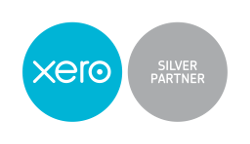Income tax is the tax that the government imposes on an individual’s income. It’s charged at different rates depending on what kind of income it relates to. Everybody is allowed to receive a certain amount of income tax-free each year – this is known as your Personal Allowance.
You pay income tax on any earnings that you receive during the tax year that are over your Personal Allowance. So, how much can you earn before tax? Here’s what you need to know…
Be Tax Code Savvy
A tax code is used by HMRC to deduct tax from wages or pension income under the PAYE (pay as you earn) scheme. Not everyone gets the same Personal Allowance within the tax year – this runs from 6th April to 5th April.
Your tax code will normally start with a number and end with a letter. For most people that have one job or pension, this will be shown as 1250L – meaning you can earn £12,500 before tax.
Letters in your tax code refer to your situation – and this affects your Personal Allowance. There are wide-ranging codes that determine if tax is to be charged at the basic rate, higher rate, or additional rate. For example:
Marriage allowance – the ending letter will be an M and this will confirm that you’ve received a transfer of your partners Personal Allowance if the lower earnings are less than £12,500
Emergency tax codes – if you’ve started a new job or started working for an employer after being self-employed your payslip will show 1250 W1, M1, or X, meaning you’ll pay tax on income above your basic Personal Allowance.
See a comprehensive range of tax code letters on the government website.
Tax Thresholds
How much can I earn before tax? Up to £12,500, you don’t pay any tax on your earnings.
How much can you earn before paying tax? In the UK you can earn between £12,500 and £50,000 and pay the basic rate of income tax at 20%.
How much can you earn before paying 40% tax? – this figure starts at the higher rate threshold of £50,001.
Income above £100,000 reduces the basic Personal Allowance by £1 for every £2 earned over the £100,000 limit – this means on earnings of £125,000 on Personal Allowance would be received and all income is taxed.
Earnings of over £150,000 will be taxed at a rate of 45%.
Taxable Commodities
See below a list of things that you can be taxed on:
- Money from employment
- Earnings from self-employment
- Rental income
- Trust income
- Interest on savings
- State pensions
- Some state benefits
- Dividends from company shares
Miscellaneous Tax Questions
How much can you earn self-employed before paying tax?
For the initial year of self-employment, your tax payment may be delayed – so you need to ensure you have enough funds put by to meet a demand of 18 months or so. An income of £1000 or less does not require registration for self-assessment with HMRC.
When you’re self-employed you pay income tax on your profits, not your total income – to make this calculation you simply deduct your business expenses from your total income, and this is the amount you’ll pay income tax on.
As a self-employed person you’re entitled to the same tax-free Personal Allowance as someone who is employed – for the 2019/20 tax year, this will be £12,500. If you have two jobs and one is self-employed you may have a tax code of 1250L for your main job and the secondary job will be taxed with a code BR, DO, or D1.
The rates are applied to profit after expenses – how much can you earn before you pay tax is shown below:
- No tax on £11850
- 20% tax on £34,499
- 40% tax on amounts over £46, 350
How much can you earn a week before tax?
Take an example of annual earnings of £14,000. Your income tax yearly will be £430.00 – this equates to £35.83 per month, and £8.27 a week. On earnings of £12,000, your yearly tax would be £30.00, a monthly payment of £2.50, and a weekly contribution of 0.58 pence.
Tax-free Allowances
Tax-free allowances reduce the amount of tax you need to pay on the income you receive. These include tax-free dividends if you hold shares or funds, and a certain amount of income generated from personal savings interest. Blind person allowances and maintenance payment relief are just two other factors that will be taken into consideration. To make sure you’re not losing out on any tax benefits you should consult an accredited tax accounting company.
Get Specialist Help
Tax Navigator has teams of qualified accountants to provide you with simple time-saving solutions – so you pay the correct amount of tax at exactly the right time. You’ll be consulted on the best options for you whether you’re a sole trader, self-employed, a partnership, or small business. There’s no obligation and you can get a free quote on request.



0 Comments